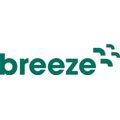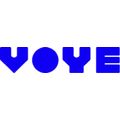Manet Travel provides global travelers with Internet connectivity covering 100+ countries all over the world. Quick activation and simple management to benefit from affordable data plans to surf the web worldwide!

Manet Travel provides global travelers with Internet connectivity covering 100+ countries all over the world. Quick activation and simple management to benefit from affordable data plans to surf the web worldwide!
Manet Travel eSIM Data Plans for British Virgin Islands
Frequently Asked Questions
Does Manet Travel offer unlimited data eSIM for British Virgin Islands?
Manet Travel does not provide an unlimited data eSIM plan for the British Virgin Islands. The available options are fixed‑data plans that allow a set amount of data within a 30‑day period.
For travelers who want a generous data allowance, Manet Travel offers a 30‑day 50GB plan priced at $247.17 USD, a 30‑day 20GB plan for $103.03 USD, and a 30‑day 10GB plan for $53.76 USD. Choosing one of these fixed plans can be more cost‑effective than an unlimited plan if the user is not an extremely heavy data consumer.
Does Manet Travel offer British Virgin Islands eSIM with phone number and SMS?
Manet Travel does not provide eSIM plans for the British Virgin Islands that include a local phone number or SMS capability. The plans sold by this provider for the British Virgin Islands are data‑only eSIMs, and they contain no inbound or outbound voice or SMS services. Travelers who need to communicate can use popular VoIP applications such as WhatsApp, Telegram, or iMessage over the data connection to send messages and make calls without a local phone number.
How many data plans does Manet Travel offer for British Virgin Islands?
Manet Travel offers seven single‑country plans and seven multi‑country plans for the British Virgin Islands. The available packages span a price range from $7.56 to $371.34, with data caps that vary between 1 GB and 50 GB. The validity of the plans falls between 7 and 30 days, giving travelers flexibility depending on the duration of their stay.
Summarized by Gen AI. Last updated:




